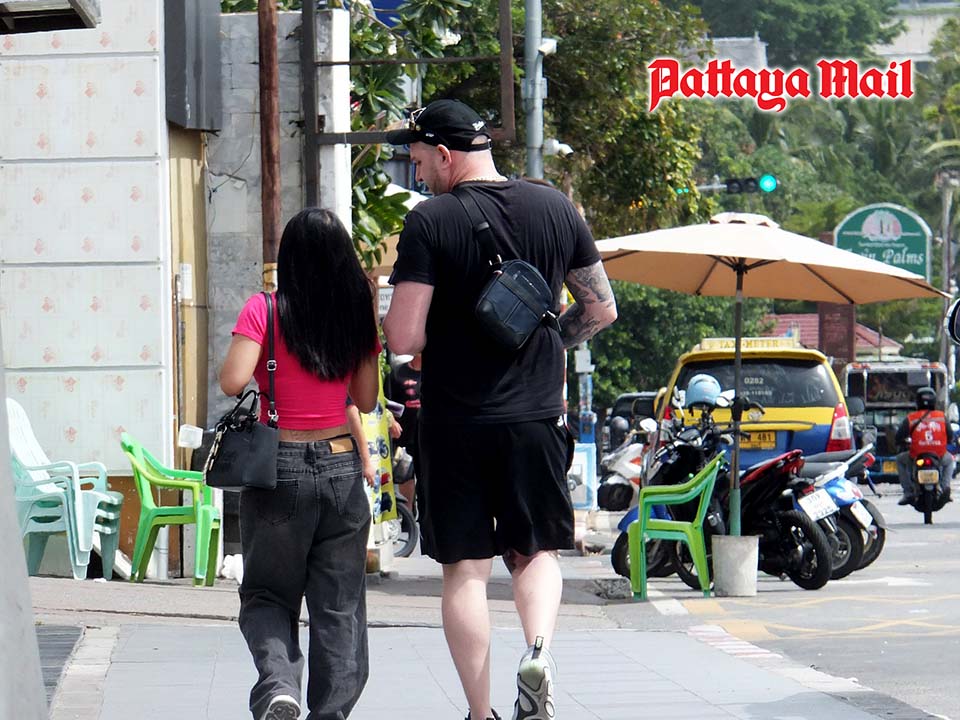Pattaya Then and Now: The party town that grew up, or just grew old?
Once a vibrant hub of lively bars, friendly faces, and simple pleasures, Pattaya today wrestles with the impact of rising costs, demographic shifts, and a digital age that’s changed how visitors connect. (Photo by Jetsada Homklin)
PATTAYA, Thailand – Pattaya—once heralded as Asia’s premier beach party and nightlife destination — now faces growing questions about whether it can ever recapture its famed “golden era.” Longtime visitors and locals alike observe a city in transition, grappling with demographic shifts, rising costs, and changing tourist expectations.
Many expats and tourists reminisce about the early days when Pattaya was simpler, friendlier, and more welcoming. “I remember the first time I went over 30 years ago,” one visitor recalls, “the women would give you small massages without demanding money, and the bars were filled with lively games and real interaction — none of this staring at phones nonsense.” Today, many lament how smartphones and social media have transformed nightlife into a digital, disconnected experience. “You walk into bars and staff barely look up from their screens,” says another, “it’s like coming to a ghost town compared to the past.”
The city’s shifting tourist makeup also stirs mixed feelings. Pattaya’s international flavor now includes growing groups of Indian, Russian, and Chinese visitors, altering the social dynamics and local atmosphere. While some welcome the diversity, others feel the new arrivals bring changes that clash with traditional expectations. One commenter even dubbed the area “Little Bombay,” highlighting the significant presence of Indian tourists and businesses. Others see this as a consequence of government policies aimed at encouraging mass tourism from India, which some believe has overlooked the spending patterns and local sentiments of these groups.
Economic factors play no small role. Visitors note that what once made Pattaya attractive—cheap flights, affordable accommodation, and low-cost entertainment—has eroded. The Thai baht’s strength, inflation, and rising prices across food, hotels, and nightlife now make the city less accessible for budget travelers. One expat points out, “Prices have gone up, Thai expectations have gone up, but foreigners’ budgets haven’t. Exchange rates and visa changes haven’t helped either.” Rising costs of living in Western countries also influence tourist behavior, shifting the demographic to retirees and wealthier travelers, but the overall vibe is less vibrant.
Visa regulations and enforcement have tightened in recent years, though some argue that many complaints about visa difficulties are exaggerated. The quest for wealthier tourists has resulted in ever-changing policies, sometimes making Pattaya feel less welcoming to middle-income visitors who once formed its core.
Despite the challenges, Pattaya continues to buzz with pockets of nightlife and genuine social interactions, though some say you have to look harder or steer clear of overly commercialized tourist spots. “Not all bars allow staff phones during work hours; there are still places with games and real fun,” one local assures. However, others worry that unless Pattaya adapts to modern tastes and expectations — including offering more Instagrammable, trendy venues — it risks losing relevance with younger generations who prefer more upscale, digitally connected experiences.
Ultimately, the future of Pattaya hinges on balancing its rich cultural past with evolving global tourism trends. Whether it can recapture its “golden era” remains uncertain, but the city’s story continues — shaped by changing people, culture, and spending habits.



